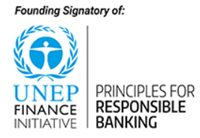How we engage
We’ve talked about the ‘why’ of our approach to sustainability in our sustainability direction, and we’ve detailed ‘what’ we do.
Equally important is ‘how’ we do it: we collaborate, we listen and we are transparent.
We collaborate
No one sector, much less one bank, has the ability to solve the world’s problems. We believe that an inclusive approach is the only way we can make any meaningful positive impact. From climate to human rights and financial health, we seek to increase our impact through partnerships and coalition-building.
For our climate approach we worked with the 2˚ Investing Initiative (2DII) to develop an open-source methodology to measure the most carbon-intensive parts of our loan book and steer them towards reaching net zero by 2050. We then personally and individually engaged with more than 40 banks interested in the work ING was doing. This led to 17 systemically important banks joining the pilot with 2DII.
Four of these banks joined us in our overarching commitment to steer our loan book in what we called the Katowice Commitment in December 2018. This then turned into the UN-led Collective Commitment to Climate Action, which was signed by over 30 banks in September 2019.
We joined the Net-Zero Banking Alliance in August 2021, and updated our portfolio-related targets to align with global climate goals aimed at achieving a net-zero world by 2050.
Human rights is also a topic we collaborate on, as part of the Thun Group, the OECD Advisory Group and as part of the steering committee for the Equator Principles. We also participate in learning platforms and promote a shared language among banks, for example through the Shift Financial Institution Practitioners Circle and the Shift Business Learning Programme, to name a few.
We listen
We seek out open dialogue with our stakeholders, responding to their views and concerns. Their input helps us balance competing expectations, address issues in an informed way and, crucially, helps us to improve our business.
Retail customers, business clients, employees, investors, NGOs, suppliers, supervisors and regulators are among our most important stakeholders. Rather than having one-off consultations around specific topics, we have an ongoing dialogue about our role in society, our products and services, our business performance and other issues. This is done at both business-unit level and at a global level. For more information on how we engage with stakeholders regarding the sustainability aspects of ING’s strategy, see our policy on stakeholder dialogue.
Examples include our approach to materiality, client roundtables; regular meetings with NGOs and other civil society organisations on topics ranging from climate change to animal welfare; targeted stakeholder engagement regarding specific policies in our environmental and social risk framework; and roadshows with investors on sustainability.
We are transparent
We don’t make empty promises. We go beyond commitments to focus on actions and progress. We communicate transparently on those so that we can be held accountable. We share our successes, but also our challenges.
For example, we annually report on the climate alignment of carbon-intensive sectors in our lending portfolio. Also, we provide dedicated updates on our approach to human rights and report on our progress in sustainability in the annual report.
Memberships

ING endorses (is signatory of):
- Children’s Rights and Business Principles (CRBP)
- The Core Conventions of the International Labour Organisation (ILO)
- EU Transparency Register
- Financial Stability Board’s (FSB) Task Force on Climate-Related Financial Disclosures (TCFD) recommendations
- OECD Guidelines for Multinational Enterprises
- United Nations Environment Programme Finance Initiative Principles for Responsible Banking (PRB)
- United Nations Global Compact (UNGC)
- United Nations Guiding Principles on Business and Human Rights (UNGP)
- United Nations-backed Principles for Responsible Investment (PRI)
- The Universal Declaration of Human Rights (UDHR)
ING is a member of, for example:
- The Academy of Business in Society (ABIS)
- Association for Financial Markets in Europe (AFME)
- Climate Markets and Investment Association (CMIA)
- Equator Principles Association (EP)
- European Banking Federation
- European Energy Efficiency Financing Coalition
- European Financial Services Round Table (EFR)
- EUROSIF (VBDO)
- Institute of International Finance (IIF)
- International Capital Market Association (ICMA)
- International Integrated Reporting Council (IIRC)
- Loan Markets Association (LMA)
- Roundtable on Sustainable Palm Oil (RSPO)
- Thun Group of Banks
- United Nations Environment Programme Finance Initiative (UNEP FI)
- United Nations-convened Net-Zero Banking Alliance
